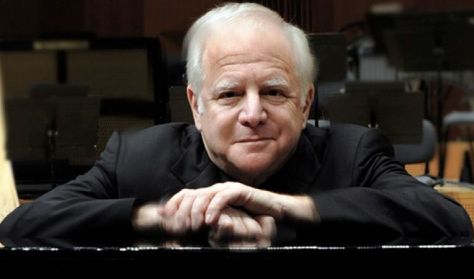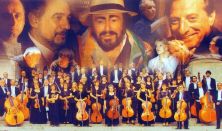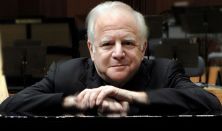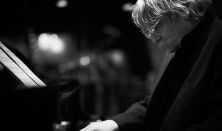Program

MÁV Lukács/3. Zeneakadémia 21-22
Amerikából érkező, nemzetközi hírű, kiváló karmester lesz a hangverseny vendége.
Nincs aktuális előadás
Ön egy múltbeli eseményre keresett rá. Kérjük, válogasson aktuális kínálatunkból a Jegy.hu keresőjében!
Last event date: Friday, November 19 2021 7:00PM
MÁV Szimfonikus Zenekar
Műsor:
John Corigliano: Elégia
Dohnányi: fisz-moll szvit, op. 19
Beethoven: 3. (Esz-dúr) szimfónia, op. 55 („Eroica”)
Vezényel: Leonard Slatkin
Leonard Slatkin nagyszülei Ukrajnából vándoroltak ki, szülei is muzsikusok voltak. Tanulmányait a New York-i Julliard Schoolon fejezte be, a kor híres karmestere, Walter Susskind volt a tanára. Amerika és Európa több nagy zenekarának volt zeneigazgatója, több mint 100 lemezt adott ki. Műsorán egy-egy amerikai és magyar mű szerepel, valamint az egyetemes zene egyik kimagasló remekműve. John Corigliano (1938–) Elégia című egytételes darabját 1966-ban mutatták be San Franciscóban, ajánlása Samuel Barbernek szól. Lassú tempójú, szomorú, drámai zene ez. Egészen más karakterű Dohnányi Ernő 1910-ben bemutatott műve. Színes, ötletekben gazdag, szórakoztató, de igényes zenei eszközöket felvonultató kompozíció. A koncertet Beethoven 3., Eroica szimfóniája zárja.
Rendező: MÁV Szimfonikus Zenekar
Our offer
Suggestions
Fazıl Say, Farkas Róbert
Székely Edit, Amarbayasgalan Maral
Karácsonyi koncert
Warning! The basket time limit is about to expire!
item(s) in basket
total:
Time limit has expired. Please, put item(s) in to basket again.





